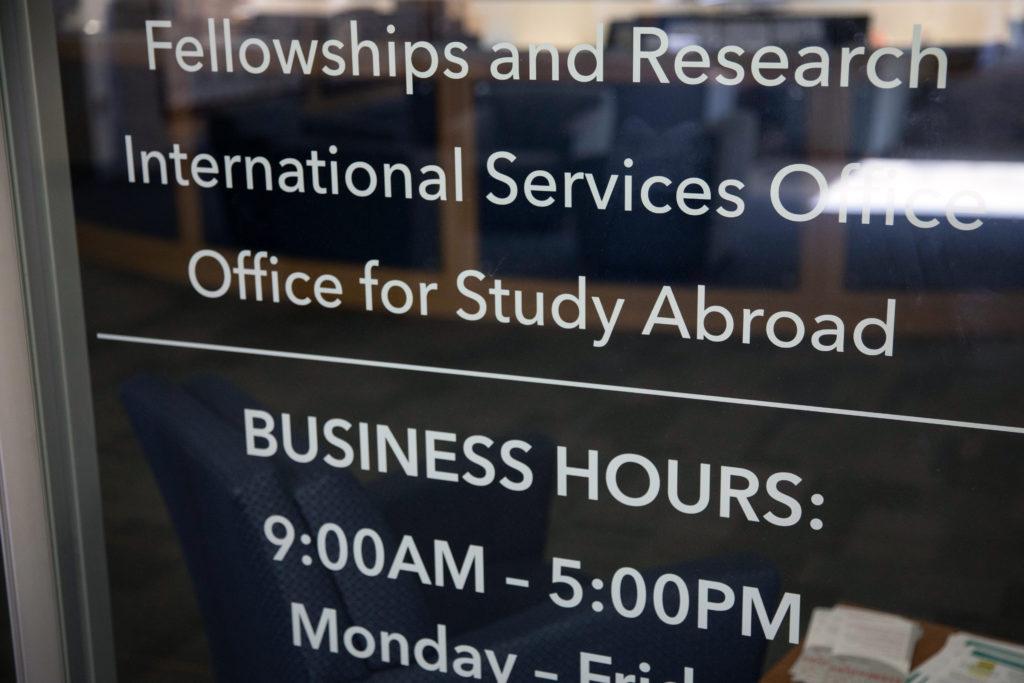The University is scaling back summer study abroad programs as student interest wanes for the second consecutive year.
Last summer, officials attributed the cancellation of more than half of the summer study abroad programs to steep tuition costs and promised to examine why student interest had dropped. But a year later, officials and study abroad experts said interest in other summer opportunities, like internships, has superseded that of study abroad programs because they often give students real-world experience or money-making opportunities an international program can’t provide.
Just 10 programs were offered this summer, down from 14 trips offered last year – eight of which were canceled. Of those 10 programs, four were nixed because of low enrollment or changes in faculty plans, officials said.
Faculty whose courses were canceled said the program’s prices could have deterred students from pursuing the opportunities at a time when they could work instead.
Donna Scarboro, the associate provost for international programs, said that when interest in summer abroad programs fell last year, officials sought feedback from faculty and academic advisers to find out why students don’t enroll in summer trips.
Scarboro said she learned through the consultation that individual schools could better detect which programs students were interested in than the study abroad office.
“Schools may play a stronger role in identifying programs that meet their priorities before proposals are considered by study abroad,” she said in an email.
Of the four programs canceled this summer, three had low enrollment and one was called off because the faculty member leading the trip couldn’t attend anymore, she said. Scarboro said interest could have dwindled as students opt to work in place of paying for an abroad program.
Scarboro said for short-term programs, faculty have more responsibility to garner interest in their trips because they’re smaller trips, while the study abroad office lists the opportunities on its website with information about each trip.
But faculty whose trips were canceled because of low enrollment attributed the shortage to a lack of advertising from the study abroad office.
Phillip Troutman, an assistant professor of writing whose program in Amsterdam was canceled because of low enrollment, said he spent more than 40 hours developing a proposal for the trip, but just five students registered. The Office for Study Abroad requires that at least eight students sign up for a study abroad program that usually recruits as many as 25 participants for each trip.
Troutman added that he personally advertised the trip by postering around campus and creating a Facebook page, but the study abroad office didn’t promote the trip at all. He said it’s difficult to advertise on his own because he doesn’t have the University-wide outreach the study abroad office has to advertise the programs.
“I think it would take a lot more advertising just so students know about them,” Troutman said. “Another professor and I made flyers and let our students know and put our stuff around campus, but it’s tough to do that on your own.”
Study abroad experts said during the summer, interest in study abroad programs could decline as offices compete more with other opportunities students find, like internships or work.
Scott Pentzer, the associate dean for global education at Tulane University, said it’s not unusual to see summer programs canceled due to low enrollment because students would rather work to earn money instead of spending it.
While interest in semesterlong abroad programs has increased nationwide, the same trend does not hold true for short-term trips, he said. Between 2015 and 2016, enrollment in study abroad programs grew nearly 4 percentage points, according to the National Association of Foreign Student Advisers.
“It’s a different environment when you’re working with students on summer study abroad than in the academic year because the summer, in a way, is much more competitive,” Pentzer said. “So sometimes the summer program can be kind of a contingent thing because other things come up.”
Emily Capdeville, a data specialist at Tulane’s Center for Global Education, said study abroad offices should advertise summer trips as alternatives to work to allure students who would prefer a typical summer internship.
She said summer abroad programs should focus on advertising academic requirements that could be fulfilled during the trip to garner more interest because students could get a headstart on the academic year with previously completed classes.
“It’s a balancing act of making sure you’re incorporating the local environment when they’re studying abroad into the academics, and then making sure they’re offering courses that meet a student’s need,” she said.




